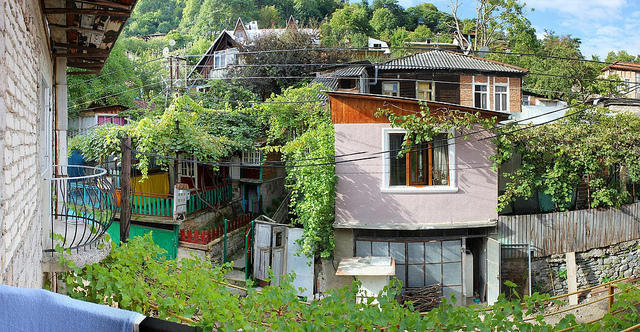How To Get Along With Your Host Family


Language Barrier
The biggest problem that you are likely to encounter is the language barrier. Although members of your host family will likely have some English ability, there’s a good chance that it will be fairly basic. Whether you have a good foundation in the local language, or have just learned a few words, communicating with you host family will likely pose a challenge.
Asking your local friends and coworkers to help translate can be a great help, but ultimately it will only get you so far. You can’t rely on translators for the day-to-day interactions and conversations that make up most of your life with your host family. Your own studies of the local language will help. Living with the language barrier will require a sense of humor, an open mind, and a willingness to be patient and act things out.
Cultural Barrier
Less obvious, but possibly more troublesome, is the cultural barrier between you and your host family. The cultural barrier is more than just unfamiliar food and clothes. It also means that both you and your host family have unspoken assumptions about what is expected and appropriate. For example, it may be totally normal in your family for everyone to do their own thing and have some privacy in the evening. In your host culture, however, guests and family members are expected to spend free time with the family. It may not even occur to them that, in a different culture, this is a time for people to do their own thing. Spending this time alone in your room may seem rude or antisocial to your host family.
Learning as much as you can about the culture before you go can help you to understand and navigate these cultural tripping points. The orientation and cultural classes that you will have before you begin your placement will help, as well. When you are living with your host family, pay close attention to the daily routines and day-to-day behaviors of family members, so that you understand what is normal in your host culture.
Giving Up Your Independence
This is a problem that a lot of volunteers find themselves struggling to deal with. You’ve probably been living on your own for a while now. When you are in the habit of coming and going as you please, eating what and when you want, and generally doing your own thing, it can be a difficult and stressful adjustment to being taken care of by a host family. You’ll have to give up some of your privacy and independence—but certainly not all of it. Here are some tips for finding a balance between maintaining your freedom and being part of your new family.
Keep in close touch with your host family. You may have a difficult time adjusting to the idea of curfews and someone keeping track of your comings and goings. But from your host family’s perspective, you are their guest, and they are responsible for you. If you will be going out or traveling, let them know your plans, and keep in touch with them frequently so that they don’t worry. And remember—they’re not trying to impinge on your freedom. They are just trying to take care of you!
Be willing to set your boundaries and limits. If you are honest and keep in touch with your host family, they will understand that sometimes, you need some time to yourself.
What Else Can You Do To Get Along With Your Host Family?
- Clarify as much as possible what they expect. Is there a certain time that they want you home? Do they expect you to help out with household chores? Do they have any limits for how much electricity/water or other utilities that you can use?
- Do you part around the house. Depending on your host family’s expectations, you may or may not be asked to do things like laundry or helping with household chores. But even if they don’t ask you to, they are going to a lot of trouble and effort to have you there—so take a few minutes out of your day to help with cooking, cleaning, or chores. It can make you feel like part of the family, and help to build relationships that bridge the cultural gaps and miscommunications.
- Say “Thank you!” Always show your appreciation for anything your host family does for you. You may feel that it is expected of them to prepare meals for you or to do your laundry—but whether it is expected or not, they are still going out of their way and putting in a lot of extra effort for you. A simple, heart-felt “Thank you” goes a long way to making your host family feel that all of their extra efforts are appreciated.
Most importantly, remember that you aren’t moving around the world to live the same way that you did back home and to keep doing things your way. Your time in your host country is limited, so be willing to let go of old habits, and embrace a new culture and a new way of living.



